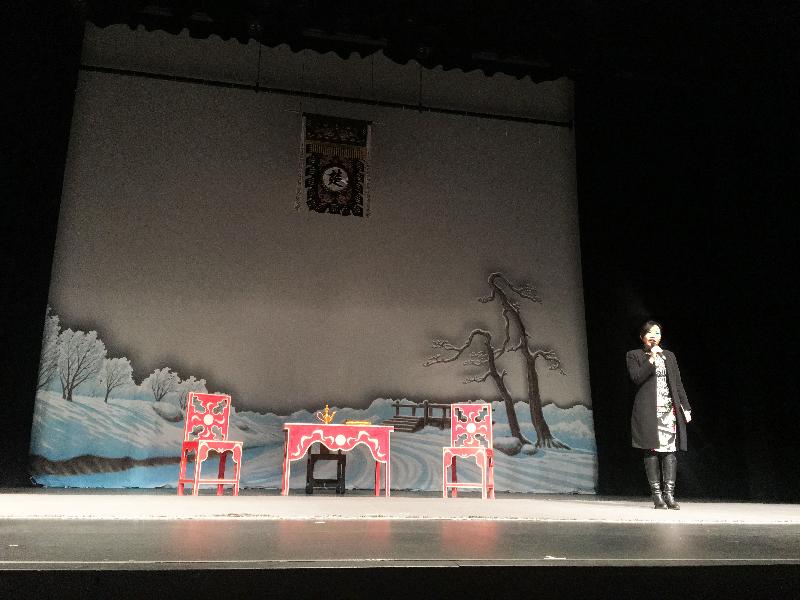The Centre for Health Protection (CHP) of the Department of Health today (July 29) reported the latest number of cases of Legionnaires’ disease (LD), and stressed the importance of using and maintaining properly designed man-made water systems, adding that susceptible groups should strictly observe relevant precautions.
From July 21 to 27, six community-acquired LD cases were reported:
1. A male patient, aged 70 with underlying illnesses, who lives in Chung Yuen House, Chuk Yuen (North) Estate, 8 Wing Chuk Street, Wong Tai Sin;
2. A male patient, aged 81 with underlying illnesses, who has lived in Ching Hoy Lau, Yue Kwong Chuen, 28 Aberdeen Reservoir Road, Southern District, and has passed away;
3. A male patient, aged 93 with underlying illnesses, who lives in Jadeview Court, 38 Hill Road, Central and Western District;
4. A male patient, aged 61 with good past health, who lives in Block 15, Lung Mun Oasis, 43 Lung Mun Road, Tuen Mun;
5. A male patient, aged 69 with underlying illnesses, who lives in Hong Ning Court, 55 Hong Ning Road, Kwun Tong; and
6. A male patient, aged 85 with underlying illnesses, who lives in 21 Soares Avenue, Kowloon City.
“Epidemiological investigations are ongoing to identify potential sources of infection, high-risk exposure and clusters, if any,” a spokesman for the CHP said.
As of July 27 this year, 65 LD cases have been reported. In 2018 and 2017, there were 105 and 72 cases respectively.
“Men, people aged over 50, smokers, alcoholics and persons with weakened immunity are more susceptible to LD. Some situations may also increase the risk of infection, including poor maintenance of water systems leading to stagnant water; living in areas with old water systems, cooling towers or fountains; using electric water heaters, whirlpools and spas or hot water spring spas; and recent stays in hotels or vessels,” the spokesman said.
Legionellae are found in various environmental settings and grow well in warm water (20 to 45 degrees Celsius). They can be found in aqueous environments such as water tanks, hot and cold water systems, cooling towers, whirlpools and spas, water fountains and home apparatus which support breathing. People may become infected when they breathe in contaminated droplets (aerosols) and mist generated by artificial water systems, or when handling garden soil, compost and potting mixes.
Immunocompromised persons should:
- Use sterile or boiled water for drinking, tooth brushing and mouth rinsing;
- Avoid using humidifiers, or other mist- or aerosol-generating devices. A shower may also generate small aerosols; and
- If using humidifiers, or other mist- or aerosol-generating devices, fill the water tank with only sterile or cooled freshly boiled water, and not water directly from the tap. Also, clean and maintain humidifiers/devices regularly according to manufacturers’ instructions. Never leave stagnant water in a humidifier/device. Empty the water tank, wipe all surfaces dry, and change the water daily.
The public should observe the health advice below:
- Observe personal hygiene;
- Do not smoke and avoid alcohol consumption;
- Strainers in water taps and shower heads should be inspected, cleaned, descaled and disinfected regularly or at a frequency recommended by the manufacturer;
- If a fresh water plumbing system is properly maintained, it is not necessary to install domestic water filters. Use of water filters is not encouraged as clogging occurs easily, which can promote growth of micro-organisms. In case water filters are used, the pore size should be 0.2 micrometres (µm) and the filter needs to be changed periodically according to the manufacturer’s recommendations;
- Drain and clean water tanks of buildings at least quarterly;
- Drain or purge for at least one minute infrequently used water outlets (e.g. water taps, shower heads and hot water outlets) and stagnant points of the pipework weekly or before use;
- Seek and follow doctors’ professional advice regarding the use and maintenance of home respiratory devices and use only sterile water (not distilled or tap water) to clean and fill the reservoir. Clean and maintain the device regularly according to the manufacturer’s instructions. After cleaning/disinfection, rinse the device with sterile water, cooled freshly boiled water or water filtered with 0.2 µm filters. Never leave stagnant water in the device. Empty the water tank, keep all surfaces dry, and change the water daily; and
- When handling garden soil, compost and potting mixes:
1. Wear gloves and a face mask;
2. Water gardens and compost gently using low pressure;
3. Open composted potting mixes slowly and make sure the opening is directed away from the face;
4. Wet the soil to reduce dust when potting plants; and
5. Avoid working in poorly ventilated places such as enclosed greenhouses.
The public may visit the CHP’s
LD page, the
Code of Practice for Prevention of LD and the
Housekeeping Guidelines for Cold and Hot Water Systems for Building Management of the Prevention of LD Committee, and the CHP’s
risk-based strategy for prevention and control of LD.
read more


